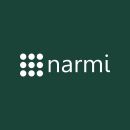For employers who want to empower their team members to grow, it’s key to ensure they have visibility into new roles and opportunities, according to a 2023 report from Cornerstone People Research Lab.
The “Ready, Set, Grow” report revealed that 73 percent of employees are seeking information about growth opportunities within their organization and 80 percent prefer to use self-service tools to learn more.
At Narmi, transparent documentation around career-advancement requirements and opportunities offers employees clear insights into how to grow within the fintech company.
According to Staff Software Engineer Josh Hughes, the “Growth Framework” outlines the requirements and responsibilities that will enable employees to grow from entry-level positions to senior roles on the team or how to move horizontally across the organization.
Narmi’s ‘Growth Framework’ outlines the requirements and responsibilities for employees to grow from entry-level positions to senior roles — or how to move horizontally across the organization.”
“A common thread between responsibilities as you move up the ranks is the magnitude of your effect on the engineering organization at large,” Hughes said of his own experience being enabled to make an impact at Narmi.
For Hughes — who has founded startups, launched successful products and returned to an individual contributor role — understanding what he finds fulfilling in his work life and how to optimize his strengths has helped him build a meaningful path to his current position.
Built In NYC heard from Hughes about his journey to Narmi and what advice he has for engineers looking to grow their careers.
I’ve been developing software for the past 10 years and have held a variety of roles ranging from summer intern to CTO.
During college, I partnered with a classmate to create a disappearing messaging app called Zeph. While we weren’t quite as popular as Snapchat, learning how to transform an idea into a tangible product was invaluable, and the experience ignited my interest in entrepreneurship.
After launching Zeph, I co-founded a daily fantasy sports company called Draftpot. As CTO, I hired and managed a team of engineers, architected a full-stack, real-money gaming platform and actively participated in the myriad of duties assigned to startup founders, like fundraising.
Following a successful launch, Boom Entertainment acquired Draftpot and asked me to come onboard as CTO.
A defining moment for me at Boom was spearheading the development and launch of a gaming platform in partnership with NBC Sports called NBC Sports Predictor. The platform was advertised to millions on live TV during Sunday Night Football, acquired over a million users and paid out over $3 million in prizes during my time at the company.
After Boom, I joined Narmi as a staff engineer on the mobile team.
What about the role with Narmi appealed to you during your job search?
In the years leading up to the launch of Predictor, my job responsibilities slowly began to shift from individual contributions in the codebase to project and people management, sourcing and interviewing prospective hires, meeting with external stakeholders and generally operating at a level that was a bit too far removed from the end product for my liking. I wanted to try and maintain a similar level of impact while shifting my focus closer to the codebase, so I scheduled a meeting with the CEO to discuss my goals.
We decided that no existing role would meet my criteria, and opted to create the entirely new role of technical advisor. In addition to completing individual contributor work, I would act as a formal resource for junior engineers, distributing institutional knowledge through design meetings, pair programming sessions and code reviews.
As my time at Boom drew to a close, I knew I didn’t want to pursue a managerial position for my next role, so I targeted senior IC positions during my job search. After an incredible interview experience with Narmi where my desire to remain an IC was not only well received, but expanded upon, I eagerly accepted a staff engineering position.
My desire to remain an individual contributor was not only well received, but expanded upon.”
How have you worked alongside your team to advance your work at Narmi?
While my first few weeks at Narmi consisted of deeply technical project initiatives that existed mostly in my mind and on my local machine, I’ve worked closely with the team to solidify these once-experimental design patterns and practices into canon through rich documentation, lively demos and pair programming sessions. Being able to effectively multiply the impact of my personal contributions has been incredibly rewarding, and I’m excited for the future of collaboration at Narmi.







